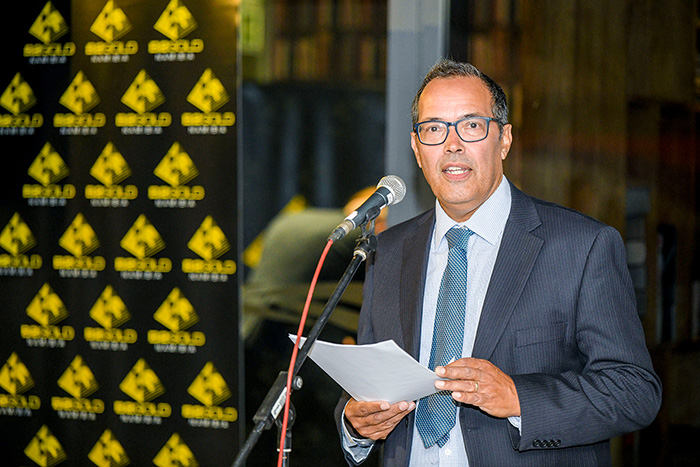Maihapa Ndjavera
Through the Institute for Public Policy Research (IPPR) publication, Robin Sherbourne said this year’s mid-year budget review was similar to last year’s one.nHe said it contains no major new policy announcements or surprises.
“Yet again, the minister was faced with more revenue than he expected in the main budget as well as some modest savings. Instead of paying down debt, he decided to spend the additional money, a significant portion going towards personnel costs because of the civil service pay and benefits increase,” said Sherbourne in a publication titled ‘Democracy Report’.
Finance minister Iipumbu Shiimi late last month tabled the 2022/23 mid-term budget review, that allocated more resources to social safety nets.
The medium-term framework expects increased revenue for the current financial year upward by N$4.4 billion, from N$59.7 billion to N$64.1 billion. This represents some 7.9% growth in revenue from the previous year. Over the medium-term expenditure framework (MTEF), domestic revenue is forecasted to grow by an average of 7.4% to reach about N$78.3 billion by the 2025/26 financial year.
Sherbourne added with such a large public sector and so many loss-making public enterprises, limited revenue growth gives the minister little room to manoeuvre. Once the costs of maintaining the status quo have been covered, there is little room for additional spending and forecasts presented by the minister suggests little is likely to change in the run-up to the next presidential elections in 2024, he said.
The key to reducing debt to more sustainable levels, he believes is to reinvigorate investment and growth, especially private and foreign direct investment, both of which have fallen steadily since 2016.
The public debt stock is expected to increase to N$138.4 billion, equivalent to 69.6% of gross domestic product in FY2022/23. According to a ministry official, Namibia’s current debt repayments are about N$1.5 billion every three months.
“The high public debt levels continue to be central in the fiscal policy considerations over the medium-term. As affirmed in the previous budget, government maintains the commitment to redirect much of the revenue increases in the coming years, as the economy recovers, towards debt redemption and reducing the borrowing requirement as much as possible,” stated Shiimi.
He added government will focus on maintaining a positive primary budget balance over the medium-term.
At the same time, the finance minister noted government will continue working in close collaboration with the private sector to diversify the economy and create new engines of growth. Popular Democratic Movement (PDM) shadow finance minister Nico Smit said Namibia’s debt is some two percentage points more expensive than South Africa’s debt for example.
“This does not sound a lot but calculate the difference in our interest payments versus theirs, and compound that over the duration of the bond, and you are talking about billions upon billions of dollars, all devoured by debt, which should have gone into Namibia’s development,” he pointed out last week in his intervention in the National Assembly.
Smit noted that it is all good and well to continue borrowing from the capital market to fund government’s current operations but for “every dollar spend on an incompetent civil servant’s salary, government postpone the development of those most destitute individuals,” in society.
“Those who have to live without a roof over their heads, without running water, without proper sanitation, without reliable electricity, without good roads, and in many cases, still without a snowball’s hope of ever getting access to the internet,” continued Smit.
Economics lecturer at the University of Namibia (Unam), Jesse de Beer, said within this challenging environment, Shiimi had to balance higher social spending to support the most vulnerable people in the country.
“The minister’s task was further complicated by the civil servant salary increases which were announced in August that were not budgeted for in the beginning of the year. Given these challenges, there are some positive take aways from the medium-term budget review speech,” she pointed out.
As expected, De Beer said revenue collection improved on the back of strong collections year-to-date, mainly in all major categories of taxes. Expenditure is expected to grow at a slightly slower pace than government revenue. This has led to a mild improvement in fiscal indicators and both the budget deficit and interest payments was slightly lower than expected. De Beer stated in the longer-term context, two major interrelated issues in the Namibian fiscal space thus remain: the public sector wage bill and the restructuring of Public Service Employees Medical Aid Scheme (PSEMAS), which she believes the medium-term budget review gave limited information on these issues.


